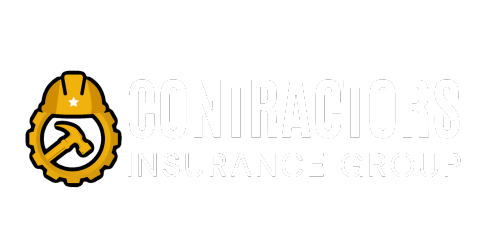What Is Business Property Insurance And Why Is It Important for Contractors?
Running a contracting business comes with unique risks—heavy equipment, job site hazards, expensive tools, and property investments. One storm, fire, or theft incident could wipe out your gear or office, setting your business back months (or even years). That’s where business property insurance steps in. If you’re wondering what business property insurance is and whether it’s worth it, especially for contractors, let’s break it down.
What Is Business Property Insurance?
Business property insurance is a policy designed to protect your company’s physical assets. For contractors, this typically includes:
Your office building or rented space
Storage yards or warehouses
Tools and heavy machinery
Office furniture and computers
Materials stored on-site or in your facility
It’s a safety net that ensures you can repair, replace, or recover financially if your business property is damaged by fire, theft, vandalism, or covered natural disasters.
This type of policy is also referred to as commercial property insurance or commercial building insurance, and it’s essential for both owned and leased properties.


Why Contractors Need Business Property Insurance
Let’s talk specifics.
Imagine you're a flooring contractor with a rented warehouse full of materials. A burst pipe overnight floods the entire building, ruining $25,000 worth of wood flooring. Or, you’re an electrical contractor and your warehouse is broken into—thieves steal your copper wiring and power tools.
Without commercial real estate insurance, you'd be paying out of pocket to recover. With the right business property insurance, you’d file a claim and get covered for repairs, replacements, and potentially even lost income.
Contractors face these real risks daily:
Job site storage is vulnerable to theft or weather damage.
Heavy tools and equipment are expensive to replace.
Office buildings or garages can suffer fire, storm, or vandalism damage.
Having small business property insurance helps keep your operations moving, no matter what hits your physical assets.
What Does Business Property Insurance Typically Cover?
A good commercial property insurance policy will cover:
Buildings you own or lease
Contents inside the building (tools, equipment, supplies)
Outdoor signage
Fencing and landscaping
Business interruption coverage (if you can’t operate temporarily)
Each policy varies, so getting a business property insurance quote that’s tailored to your contracting operation is crucial.
How to Get the Right Coverage
Every contractor’s needs are different. A general contractor with an office and warehouse has different risk exposures than a roofer storing materials in a truck. That’s why getting a customized business property insurance quote is important.
At Contractors Insurance Group, we specialize in helping Texas contractors secure the right commercial property insurance. We work with top providers to find plans that protect your buildings, tools, and financial future—without overpaying.

Final Thoughts
If you're a contractor in Texas, protecting your physical assets isn't optional—it's essential. Whether you’re storing materials, leasing office space, or housing expensive tools, business property insurance provides the coverage you need to bounce back after unexpected events. Don’t wait until disaster strikes. Get peace of mind today by requesting a personalized business property insurance quote that fits your specific needs as a contractor.
FAQS
Do Contractors Need General Liability Insurance?
Yes, most contractors should carry general liability insurance. It protects your business from costly claims related to property damage, bodily injury, or accidents caused by your work. Many clients and job sites require proof of general liability insurance before allowing contractors to begin work, making it essential for both compliance and peace of mind.
What Does Commercial Auto Insurance Cover for Contractors?
Commercial auto insurance covers vehicles used for business purposes, including work trucks, vans, and equipment-hauling trailers. It helps protect you from financial loss if your vehicle is involved in an accident, causes property damage, or injures someone while being used on the job. It often includes liability, collision, comprehensive, and uninsured motorist coverage options tailored to your needs.
Is Workers’ Compensation Insurance Required for Contractors in Texas?
While workers’ compensation insurance is not legally required for most private employers in Texas, that doesn’t mean it's optional from a risk standpoint. If an employee is injured on the job, you could still face a costly lawsuit without this coverage. Workers’ compensation provides financial protection by covering medical expenses and lost wages, and it can also protect your business from legal claims. For Texas contractors, it’s a smart and often essential part of a solid risk management plan.

